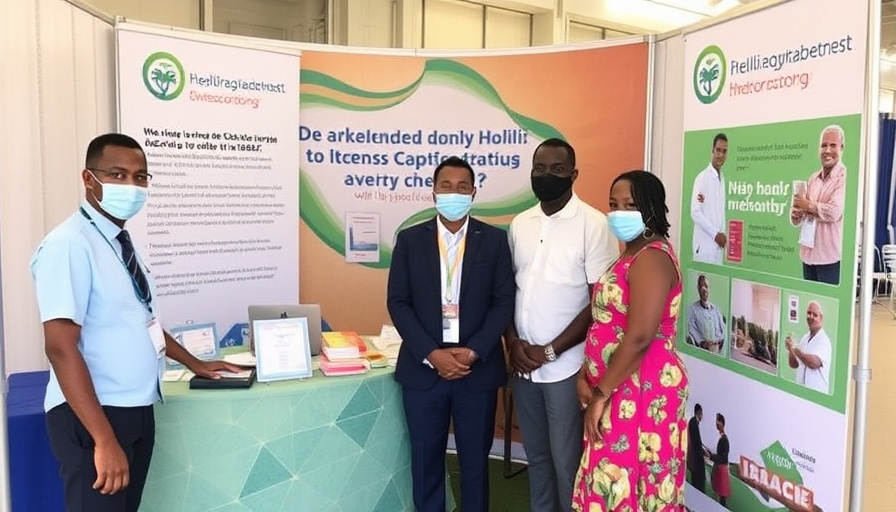
Boosting Cross-Border Trade in East Africa
The East African Business Council (EABC) has launched an initiative aimed at enhancing trade facilitation among regional cross-border traders at the Taveta-Holili one-stop border post. During the event held on October 3rd, 2025, EABC unveiled a new Trade Information Booth, designed to support small-scale traders in navigating non-tariff barriers (NTBs) that have traditionally hindered their operations. This booth is especially significant for women and youth traders looking to expand their ventures in agri-food sectors.
A Comprehensive Resource for Traders
The newly implemented booth provides vital resources, including access to digital reporting platforms for NTBs, complaint mechanisms, and market information. With partnerships from organizations such as the Alliance for a Green Revolution in Africa (AGRA), it is part of a larger project aimed at promoting intra-East African Community (EAC) trade while addressing persistent barriers that limit economic exchange. As noted by Gift Gabriel, EABC's trade in goods officer, this initiative represents a crucial step towards empowering approximately 2,440 women and youth traders across the region, enhancing their participation in agri-food trade.
Long-Term Economic Impact
Highlighting the importance of such initiatives, Mary Maisory, Deputy Director of Regional Integration at the Tanzanian Ministry of EAC Affairs, emphasized that this is more than an economic boost; it is about uplifting lives and communities. Trade barriers have presented challenges for regional commerce, with only 15% of intra-EAC trade operational due to various obstacles. However, EABC's data indicates that resolving NTBs could unlock an additional $63.4 billion in regional trade – a crucial target for economic growth.
The Role of Policy in Trade Facilitation
This initiative ties back to the EAC Treaty, which emphasizes gender equality and the promotion of balanced development in the community. By investing in capacity-building sessions focusing on financial literacy and business management skills, EABC aims to enhance governance and accountability among the cross-border trader communities. Such interventions are vital for fostering an inclusive trade environment, which is critical to achieving sustainable economic growth in the EAC region.
With the anticipated introduction of help desks by both the Kenyan and Tanzanian revenue authorities, the support structure for these traders is expected to expand. The implementation of digital solutions at borders represents a progressive step towards modernizing trade practices in the region, critical for positioning Africa adequately on the global stage.
Conclusion: Taking Action Towards Regional Integration
The substantive gains from such initiatives underscore the importance of continued governmental and private sector collaboration in resolving cross-border trade barriers. The EABC Trade Information Booth stands testament to a proactive approach in addressing trade challenges, and it is a model that could be replicated across other regions to reinforce the vision of a fully integrated EAC market. Stakeholders, policymakers, and traders alike are encouraged to engage with this initiative and leverage the resources available to enhance their trading efficiency and community development.
 Add Row
Add Row  Add
Add 


Write A Comment